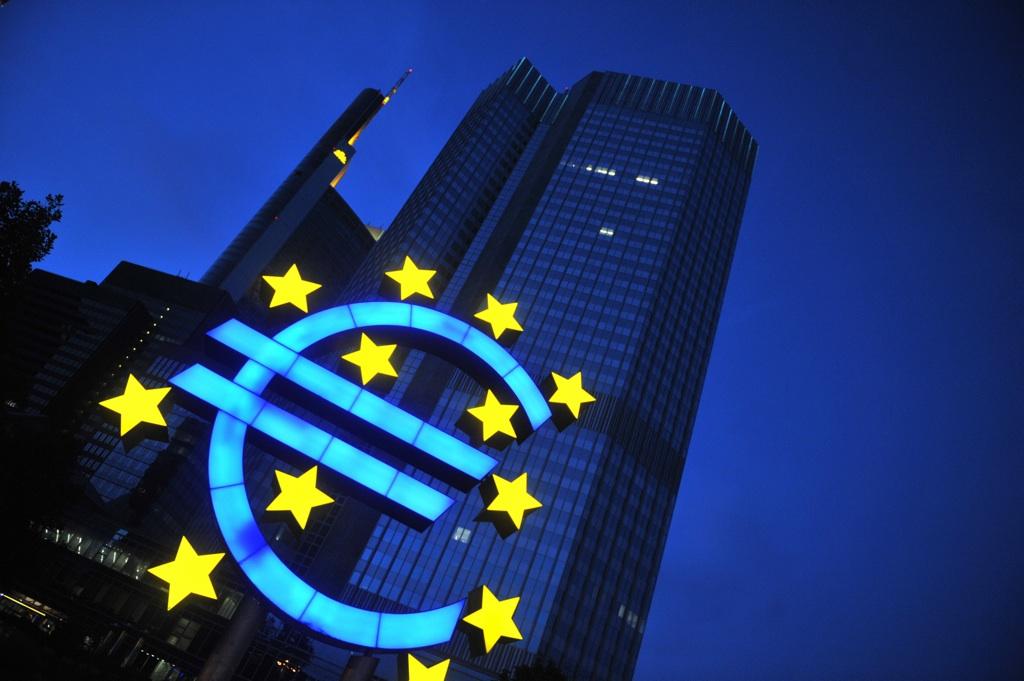Germany votes to expand the European Bailout Fund (updates)
A huge symbol of the euro is placed in front of the European Central Bank (ECB) late on June 1, 2008 in Frankfurt.
There's been a big moment today in Europe's ongoing debt crisis.
The German Parliament has approved the expansion of the so-called European Financial Stability Facility — a pile of cash that Europe's increasingly desperate leaders hope will be enough to help bail out indebted countries like Greece, and perhaps Italy, Portugal and others.
The measure that German MPs voted on today approved the expansion of that pile to $600 billion.
Six other European countries must still approve the plan, which was hashed out back in July.
But as Germany owns Europe's largest economy — and Chancellor Angela Merkel is fending off furious opposition to more bailouts, in both the German government and from German voters — today's development is an important one.
Merkel was able to get the measure passed without opposition support, which should strengthen her hand as the crisis rolls on.
"For Merkel this is without doubt a great success and it will be a great relief for her party," political scientist and Merkel biographer Gerd Langguth told Reuters.
Of course, many questions remain:
- Will $600 billion be enough to calm global markets?
- What additional steps will be required?
- Can Europe's embattled leaders manage their way out of this worsening crisis?
- And the biggest of all: can they save the euro, and the entire "European project" that has attempted to stitch together 17 European countries, ranging from the austere manufacturing giant of Germany, to the free-wheeling and reeling Greek economy?
“We have an existential national interest in the stability of Europe and the euro,” said Volker Kauder, who spoke for the Christian Democrats in the debate on the floor of the Bundestag, as reported by the New York Times.
Stay tuned.
There's plenty more drama ahead in the coming days and weeks.
In the meantime, check out GlobalPost's Athens correspondent Ken Maguire, who's done some great work this week on how the crisis is unfolding in Greece, the epicenter of European debt, and blame.
And how did we get here?
For more from Thomas Mucha on Twitter: Follow @thomaswmucha
The story you just read is accessible and free to all because thousands of listeners and readers contribute to our nonprofit newsroom. We go deep to bring you the human-centered international reporting that you know you can trust. To do this work and to do it well, we rely on the support of our listeners. If you appreciated our coverage this year, if there was a story that made you pause or a song that moved you, would you consider making a gift to sustain our work through 2024 and beyond?
